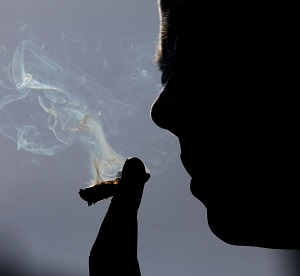Washington D.C., Jan 25: A new study conducted by a team of researchers reveals why individuals who have a history of early life adversity (ELA) are disproportionately prone to opioid addiction.
The study conducted examined how early adversities interact with factors such as increased access to opioids to directly influence brain development and function, causing a higher potential for opioid addiction.
The study was lead by UCI researchers and was published in Molecular Psychiatry.
Tallie Z. Baram, MD, PhD, the Danette Shepard Chair in Neurological Sciences at the UCI School of Medicine and one of the senior researchers for the study, was on the take that the widely known factor genetics that plays major role in addiction vulnerability, cannot be solely held responsible for the recent rise in opioid abuse.
To further clarify, the researchers simulated ELA in rats by limiting bedding and nesting materials during a short, postnatal period of time.
In female rats, this led to striking opioid addiction-like characteristics including an increased relapse- behaviour, for example.
As observed in addicted humans, the rats were willing to work very hard (pay a very high price) to obtain the drug.
Baram said: "Ultimately, we found that conditions during sensitive developmental periods can lead to vulnerability to the addictive effects of opioid drugs, especially in females, which is consistent with the prevalence of ELA in heroin-addicted women."
These findings can be used to highlight the importance given to sex differences in future ELA-related studies on opioid addiction, and in future prevention or intervention strategies being developed to address the growing opioid crisis.
The study conducted examined how early adversities interact with factors such as increased access to opioids to directly influence brain development and function, causing a higher potential for opioid addiction.
The study was lead by UCI researchers and was published in Molecular Psychiatry.
The study found that unpredictable, fragmented early life environments may lead to abnormal maturation of certain brain circuits, which profoundly impacts brain function and persists into adolescence and adulthood.
Tallie Z. Baram, MD, PhD, the Danette Shepard Chair in Neurological Sciences at the UCI School of Medicine and one of the senior researchers for the study, was on the take that the widely known factor genetics that plays major role in addiction vulnerability, cannot be solely held responsible for the recent rise in opioid abuse.
To further clarify, the researchers implanted ELA in rats by limiting bedding and nesting materials during a short, postnatal period of time.
In female rats, this led to striking opioid addiction-like characteristics including an increased relapse- behaviour, for example.
As observed in addicted humans, the rats were willing to work very hard (pay a very high price) to obtain the drug.
Baram said: "Ultimately, we found that conditions during sensitive developmental periods can lead to vulnerability to the addictive effects of opioid drugs, especially in females, which is consistent with the prevalence of ELA in heroin-addicted women."
These findings can be used to highlight the importance given to sex differences in future ELA-related studies on opioid addiction, and in future prevention or intervention strategies being developed to address the growing opioid crisis.






Comments
Add new comment